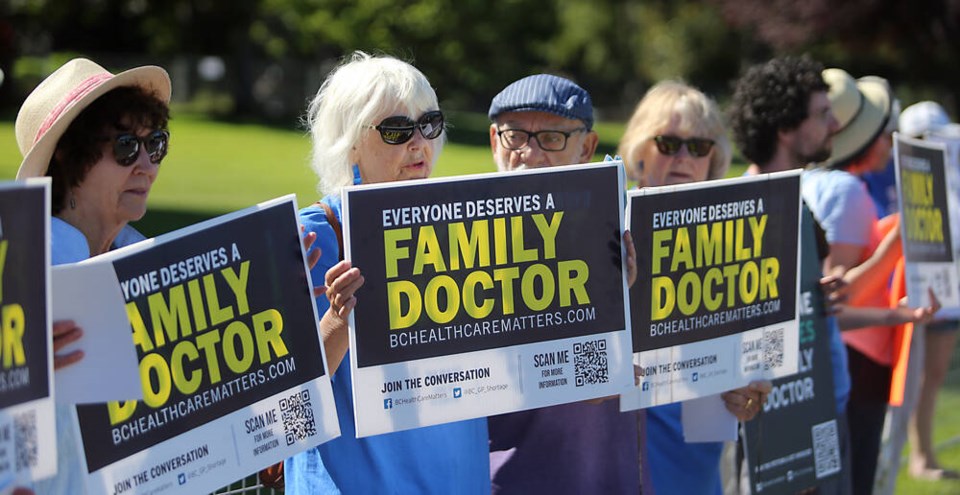A few months ago, I wrote about the crisis we are facing with family doctors. At the time, I had a fantastic family doctor, and in the column, I shared the story of how I was lucky enough to be accepted as her patient.
A few weeks later, I received a letter in the mail saying my doctor would be closing her practice and had been unable to secure a physician to take on her patients.
I would soon have no doctor.
I am not sure if it was Murphy’s Law or some other superstition, but at the time, I thought to myself that writing that I had a doctor must have contributed to my bad luck.
My doctor was moving out of province, and I know that had nothing to do with me, but it was disappointing nonetheless.
In that moment, I joined the thousands of British Columbians who do not have a family doctor. I felt scared and worried and wondered how we could continue to receive the care we needed.
I moved to Victoria when I was 19 and did not have a family doctor until I had my daughter at 27. I moved here young and alone, and luckily, at that age, I didn’t have any pressing issues that required a regular doctor. When I needed a doctor, I would go to one of the many walk-in clinics in town and get the help I needed.
It’s a different time now. I am 40 and walk-in clinics are getting to be nearly as scarce as payphones.
In our family, there are reasons that we need to see doctors regularly. Virtual options like Telus Health are great, but there are some things that the physicians on the site are not allowed to prescribe.
I went online and started searching for doctors who were accepting patients. There weren’t many, and none in this region.
I started calling offices in the Lower Mainland and was able to find a few who were accepting patients. One clinic required potential patients to come in-person and show their health care cards. On a trip to Vancouver, I made an extra stop at the clinic.
A couple weeks later, I had a phone call with the doctor, and he accepted me and my daughter as patients.
It is unfortunate that I had to seek a physician out of this region — the costs of the ferry and gas to see a doctor pose an extra barrier — but I had to make the call to do whatever I could to secure a family doctor.
I know that not everyone can afford to travel to see a doctor, and they shouldn’t have to. I acknowledge my privilege in this situation. I also acknowledge the argument that getting a physician in another area may affect people in that community.
Recently, all the premiers met in Victoria to discuss the health-care crisis, and I hope they can work collectively to make change here in saąúĽĘ´«Ă˝ and across saąúĽĘ´«Ă˝.
There are many wise people working to help solve this crisis and I have faith it will be resolved.
I think it’s important that we as individuals also work to find creative, innovative short-term solutions as a bridge for the time being. We can’t sit around and wait. Sometimes there are things we can do.



